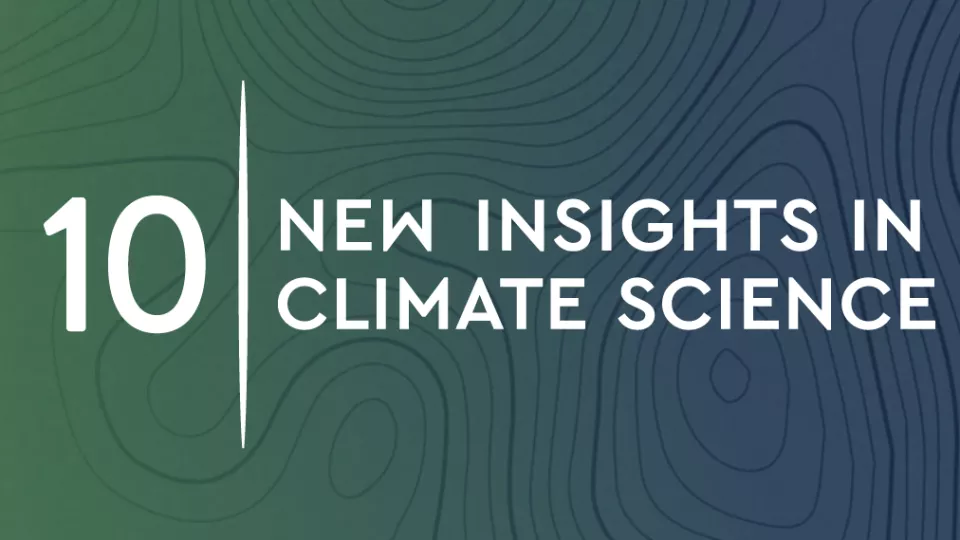Emily Boyd and Murray Scown at LUCSUS are two of 65 leading scientists behind the new synthesis report 10 New Insights in Climate Science, launched on 10 November at COP27.
The scientific synthesis report identifies that the potential to adapt to climate change is not limitless. Rising sea levels capable of submerging coastal communities and extreme heat intolerable to the human body, are examples of ‘hard’ limits to our ability to adapt. It also highlights that over 3 billion people will inhabit ‘vulnerability hotspots’ -- areas with the highest susceptibility to being adversely affected by climate-driven hazards -- by 2050, double what it is today.
The report further outlines that persistent dependence on fossil fuels exacerbates major vulnerabilities, notably for energy and food security, and that deep and swift mitigation to tackle the drivers of climate change is immediately necessary to avert and minimise future loss and damage.
In 2022, the 10 New Insights in Climate Science covers crucial topics that are key focus areas for negotiators at COP27, from adaptation and mitigation, to the intersections of climate and food systems, security, and finance:
- Questioning the myth of endless adaptation
- Vulnerability hotspots cluster in ‘regions at risk’
- New threats on the horizon from climate-health interactions
- Climate mobility: From evidence to anticipatory action
- Human security requires climate security
- Sustainable land use is essential to meeting climate targets
- Private sustainable finance practices are failing to catalyse deep transitions
- Loss and Damage: The urgent planetary imperative
- Inclusive decision-making for climate-resilient development
- Breaking down structural barriers and unsustainable lock-ins
The 10 New Insights in Climate Science report is a joint initiative of Future Earth, the Earth League, and the World Climate Research Programme.
Explore 2022's 10 New Insights in Climate Science
Download the full report (PDF)
